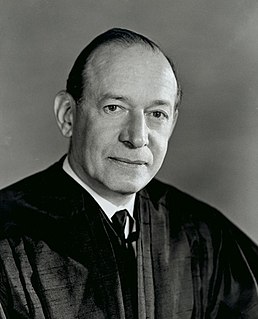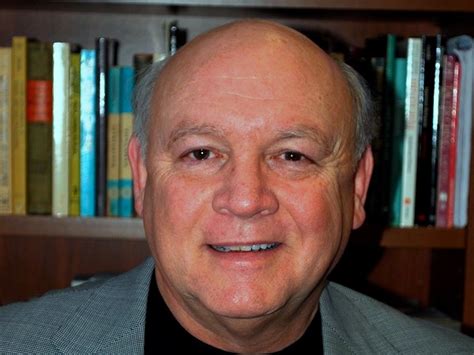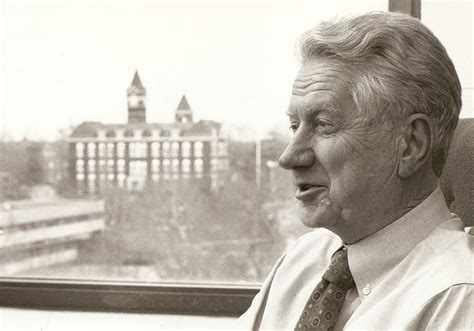A Quote by Abe Fortas
Government...may not be hostile to any religion or to the advocacy of no-religion; and it may not aid, foster, or promote one religion or religious theory against another... The First Amendment mandates governmental neutrality.
Related Quotes
The "establishment of religion" clause of the First Amendment means at least this: Neither a state nor the Federal Government can set up a church. Neither can pass laws which aid one religion, aid all religions, or prefer one religion over another. Neither can force nor influence a person to go to or to remain away from church against his will or force him to profess a belief or disbelief in any religion.
The First Amendment...does not say that in every respect there shall be a separation of Church and State....Otherwise the state and religion would be aliens to each other - hostile, suspicious, and even unfriendly....The state may not establish a 'religion of secularism' in the sense of affirmatively opposing or showing hostility to religion, thus preferring those who believe in no religion over those who do believe.
The First Amendment of the Constitution was not written to protect the people from religion; that amendment was written to protect religion from government tyranny. . . But now we're told our children have no right to pray in school. Nonsense. The pendulum has swung too far toward intolerance against genuine religious freedom. It is time to redress the balance.
I am committed to the First Amendment principles of religious freedom, tolerance, and diversity. Whether Mormon, Methodist, Jewish, or Muslim, Americans should be able to participate in their constitutional free exercise of religion. I do not think witchcraft is a religion, and I do not think it is in any way appropriate for the U.S. military to promote it.
The easy confidence with which I know another man's religion is folly teaches me to suspect that my own is also. I would not interfere with any one's religion, either to strengthen it or to weaken it. I am not able to believe one's religion can affect his hereafter one way or the other, no matter what that religion may be. But it may easily be a great comfort to him in this life-hence it is a valuable possession to him.
The court decided, based on its reading of our precedents, that the effects test of Lemon is violated whenever government action creates an identification of the state with a religion, or with religion in general, ...or when the effect of the governmental action is to endorse one religion over another, or to endorse religion in general.
The first phrase of the First Amendment spoke to the freedom uppermost in Jefferson's mind when it provided that, 'Congress shall make no law respecting an establishment of religion, or prohibiting the free exercise thereof.' Here a double guarantee could be found: first, that government would do nothing to give official endorsement to a religion or to set one faith above another; second, that government would do nothing to inhibit the freedom of religion.
I try to practice my religion in a very devout way and follow the teachings of my church in my own personal life, but I don't believe in America, a first amendment nation, where we don't raise any religion over the other, and we allow people to worship they please, that the doctrines of any religion should be mandated for everyone.
I suspect that religion is a necessary evil in the childhood of our particular species. And that's one of the interesting things about contact with other intelligences: we could see what role, if any, religion plays in their development. I think that religion may be some random by-product of mammalian reproduction. If that's true, would non-mammalian aliens have a religion?
































